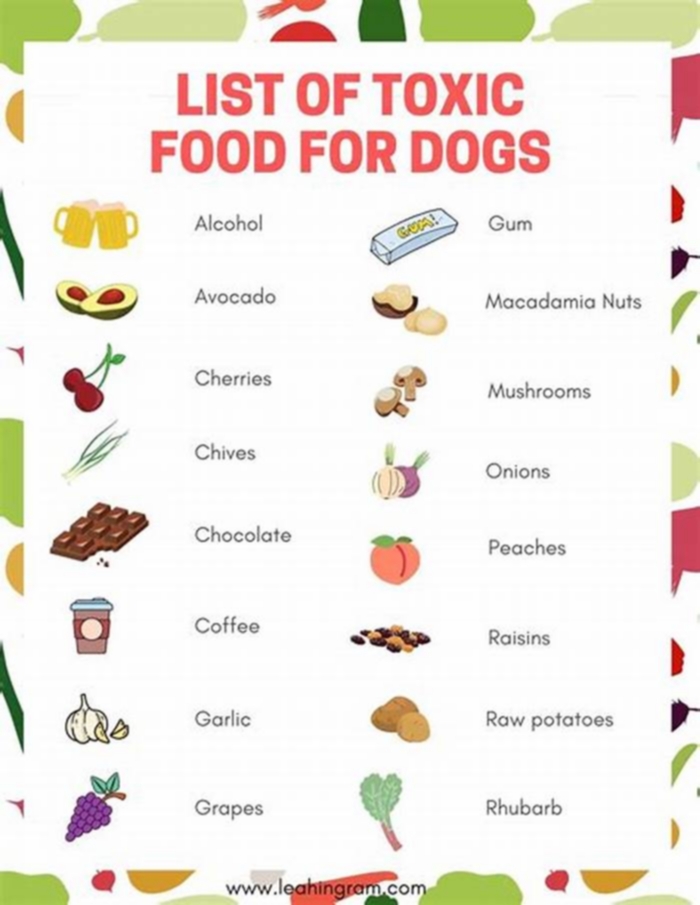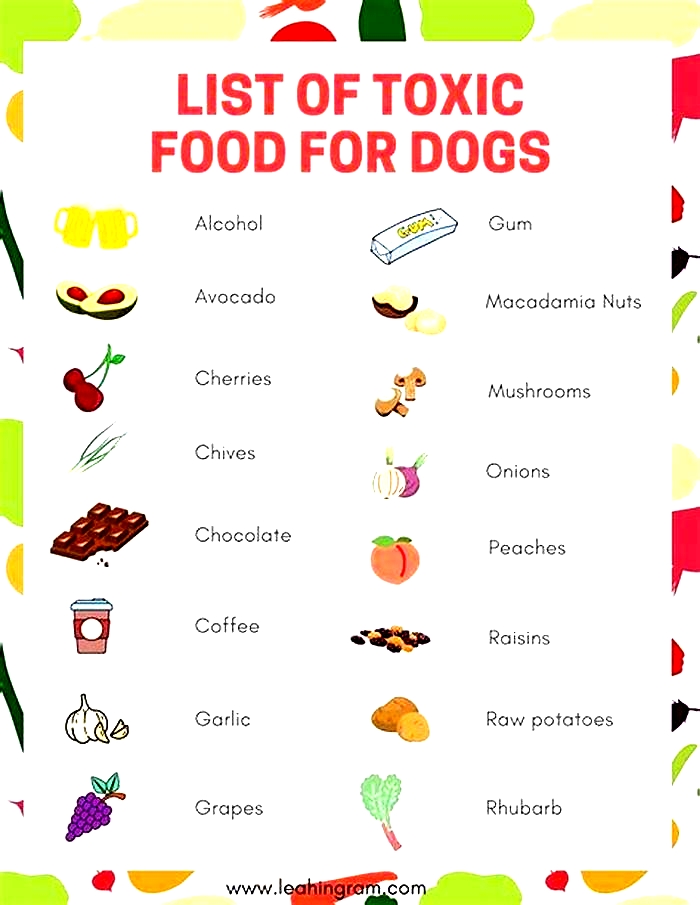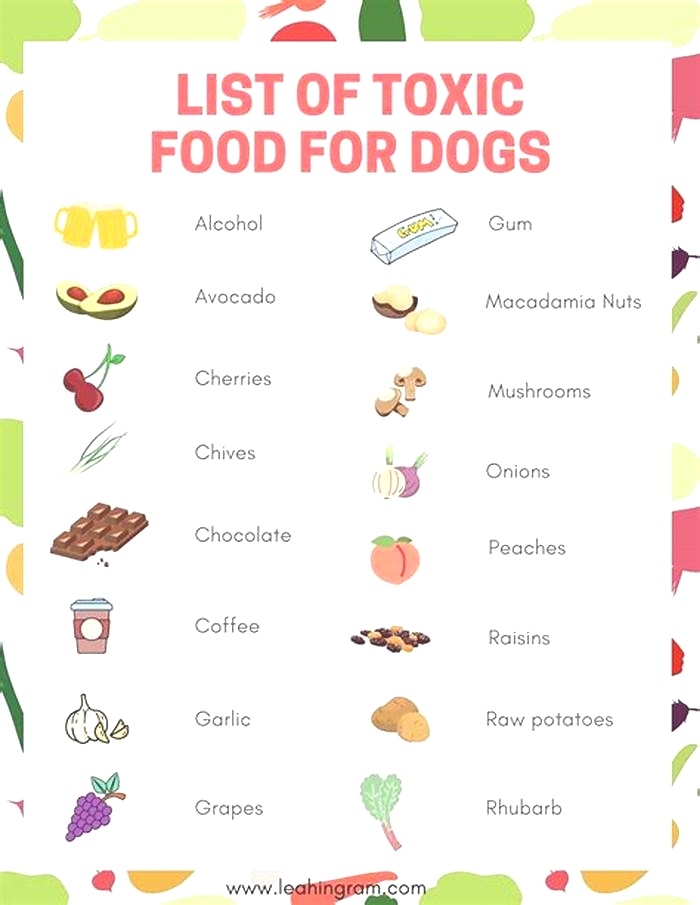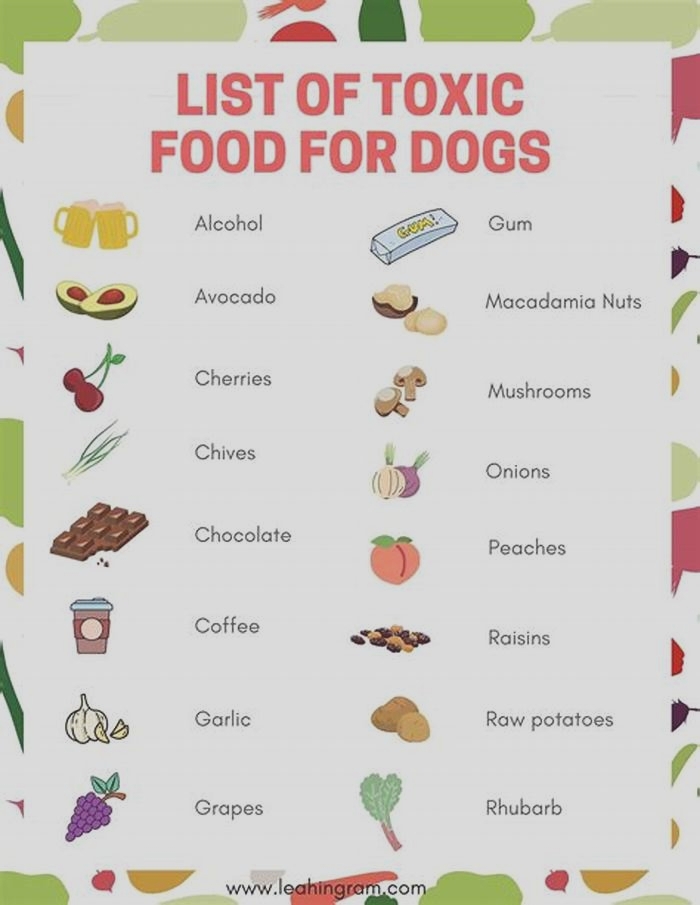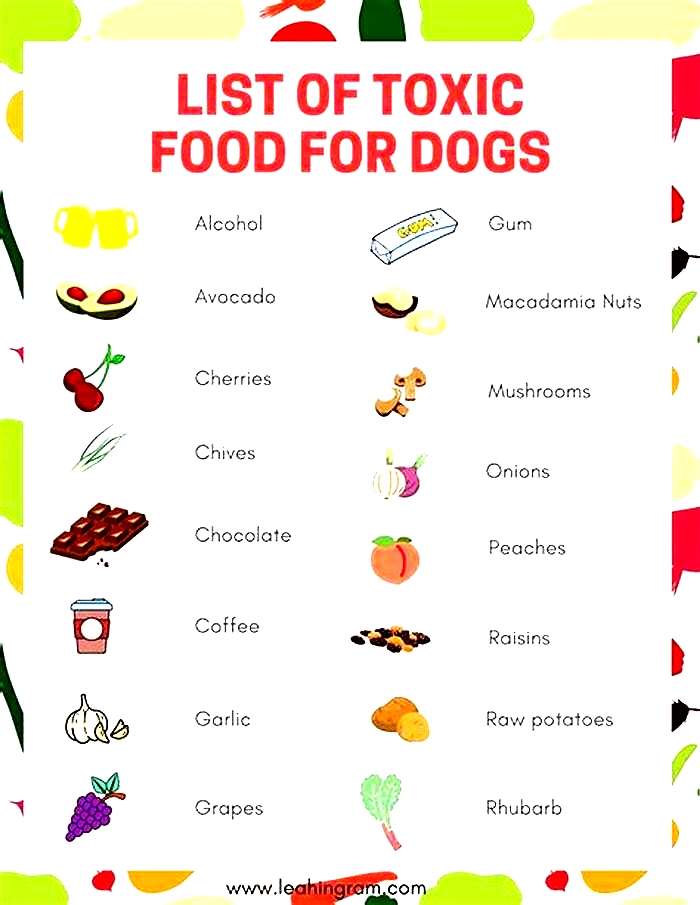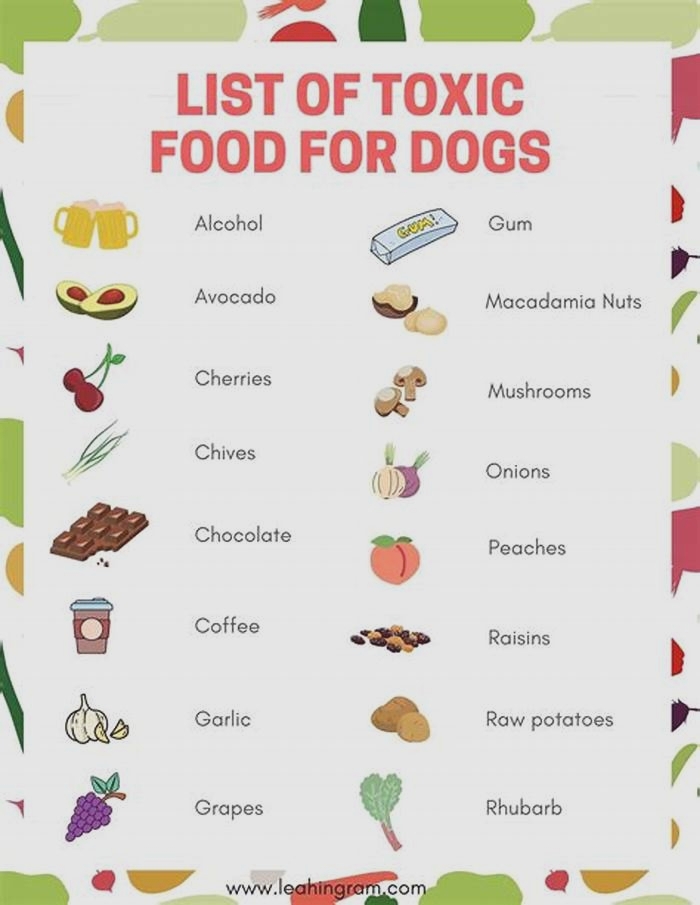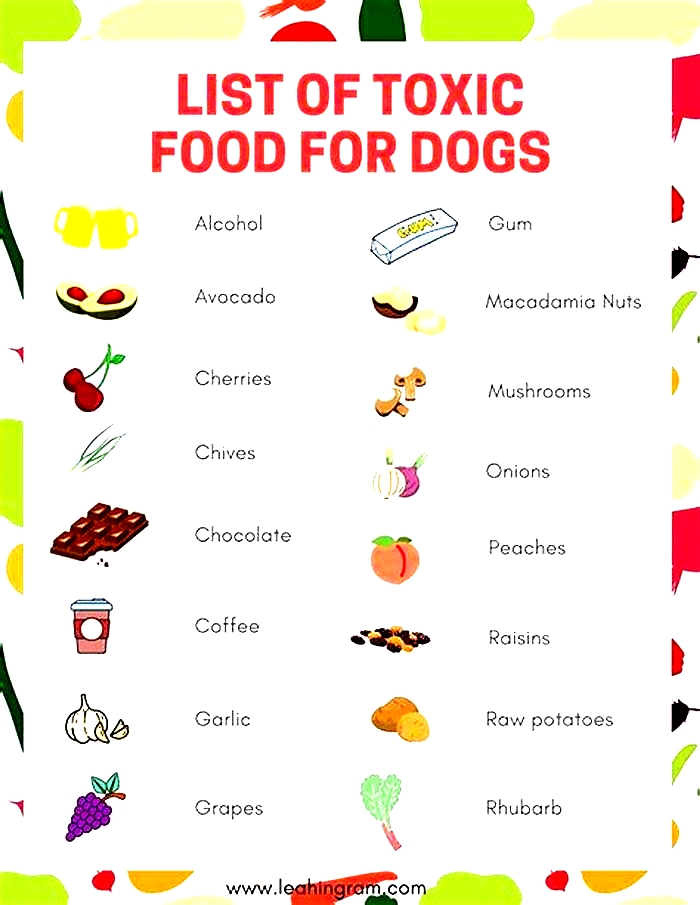top 20 toxic foods for dogs

Dangerous Foods for Dogs
Its only natural for dogs to be curious. But their curiosity can get them into trouble when they getinto areas where you store household items such as medicine and detergents. Many commonhousehold items that you use everyday can be harmful, and sometimes even lethal, to your dog.
This is a list of foods that are harmful to your dog. It is not an exhaustive list. if your dog ingests any of these it may cause vomiting, abdominal painand/or diarrhea. If anything like this were to happen our advice is to take your dog to your vet. As an alternative you can call the Pet Poison Helpline.
- Wild cherry

 Almond
Almond- Apricot
- Balsam Pear
- Japanese Plum
- May cause varied reactions:
- Yeast dough
- Coffee grounds
- Macadamia nuts
- Tomato and potato leaves and stems
- Avocados
- Onions and onion powder
- Grapes
- Raisins
- Chocolate
- Pear and peach kernels
- Mushrooms (if also toxic to humans)
- Rhubarb
- Spinach
- Alcohol
People Foods to Avoid Feeding Your Pets
ASPCA Animal Poison Control Center Phone Number: (888) 426-4435
Our Animal Poison Control Center experts have put together a handy list of the top toxic people foods to avoid feeding your pet. As always, if you suspect your pet has eaten any of the following foods, please note the amount ingested and contact your veterinarian or the ASPCA Animal Poison Control Center at (888) 426-4435.
AlcoholAlcoholic beverages and food products containing alcohol can cause vomiting, diarrhea, decreased coordination, central nervous system depression, difficulty breathing, tremors, abnormal blood acidity, coma and even death. Under no circumstances should your pet be given any alcohol. If you suspect that your pet has ingested alcohol, contact your veterinarian or the ASPCA Animal Poison Control Center immediately.
AvocadoAvocado is primarily a problem for birds, rabbits, donkeys, horses, and ruminants including sheep and goats. The biggest concern is for cardiovascular damage and death in birds and rabbits.Horses, donkeys and ruminants frequently get swollen, edematous head and neck.
Chocolate, Coffee and CaffeineThese products all contain substances called methylxanthines, which are found in cacao seeds, the fruit of the plant used to make coffee, and in the nuts of an extract used in some sodas. When ingested by pets, methylxanthines can cause vomiting and diarrhea, panting, excessive thirst and urination, hyperactivity, abnormal heart rhythm, tremors, seizures and even death. Note that darker chocolate is more dangerous than milk chocolate. White chocolate has the lowest level of methylxanthines, while baking chocolate contains the highest.
CitrusThe stems, leaves, peels, fruit and seeds of citrus plants contain varying amounts of citric acid, essential oils that can cause irritation and possibly even central nervous system depression if ingested in significant amounts. Small doses, such as eating the fruit, are not likely to present problems beyond minor stomach upset.
Coconut and Coconut OilWhen ingested in small amounts, coconut and coconut-based products are not likely to cause serious harm to your pet. The flesh and milk of fresh coconuts do contain oils that may cause stomach upset, loose stools or diarrhea. Because of this, we encourage you to use caution when offering your pets these foods. Coconut water is high in potassium and should not be given to your pet.
Grapes and RaisinsAlthough the toxic substance within grapes and raisins is unknown, these fruits can cause kidney failure. Until more information is known about the toxic substance, it is best to avoid feeding grapes and raisins to dogs.
Macadamia NutsMacadamia nuts can cause weakness, depression, vomiting, tremors and hyperthermia in dogs. Signs usually appear within 12 hours of ingestion and can last approximately 24 to 48 hours.
Milk and DairyBecause pets do not possess significant amounts of lactase (the enzyme that breaks down lactose in milk), milk and other dairy-based products cause them diarrhea or other digestive upset.
NutsNuts, including almonds, pecans, and walnuts, contain high amounts of oils and fats. The fats can cause vomiting and diarrhea, and potentially pancreatitis in pets.
Onions, Garlic, ChivesThese vegetables and herbs can cause gastrointestinal irritation and could lead to red blood cell damage and anemia. Although cats are more susceptible, dogs are also at risk if a large enough amount is consumed.
Raw/Undercooked Meat, Eggs and BonesRaw meat and raw eggs can contain bacteria such as Salmonella and E. coli that can be harmful to pets and humans. Raw eggs contain an enzyme called avidin that decreases the absorption of biotin (a B vitamin), which can lead to skin and coat problems. Feeding your pet raw bones may seem like a natural and healthy option that might occur if your pet lived in the wild. However, this can be very dangerous for a domestic pet, who might choke on bones, or sustain a grave injury should the bone splinter and become lodged in or puncture your pets digestive tract.
Salt and Salty Snack FoodsLarge amounts of salt can produce excessive thirst and urination, or even sodium ion poisoning in pets. Signs that your pet may have eaten too many salty foods include vomiting, diarrhea, depression, tremors, elevated body temperature, seizures and even death. As such, we encourage you to avoid feeding salt-heavy snacks like potato chips, pretzels, and salted popcorn to your pets.
XylitolXylitol is used as a sweetener in many products, including gum, candy, baked goods and toothpaste. It can cause insulin release in most species, which can lead to liver failure. The increase in insulin leads to hypoglycemia (lowered sugar levels). Initial signs of toxicosis include vomiting, lethargy and loss of coordination. Signs can progress to seizures. Elevated liver enzymes and liver failure can be seen within a few days.
Yeast DoughYeast dough can rise and cause gas to accumulate in your pets digestive system. This can be painful and can cause the stomach to bloat, and potentially twist, becoming a life threatening emergency. The yeast produce ethanol as a by-product and a dog ingesting raw bread dough can become drunk (See alcohol).
Poisonous food
The dangers of human food
It is important to remember that some human foods can be very dangerous to dogs. If you wish to give your dog a treat, ensure that it is something dog friendly and avoid giving them any of the foods listed below.
Alcohol
Dogs are believed to be more sensitive to ethanol than humans and so drinking even a small amount of alcohol can cause effects. Certain alcoholic drinks may be more appealing to dogs, such as cream or egg based drinks.Dogs may develop similar effects to those expected in humans, including becoming drowsy, wobbly on their feet and in more severe cases they can develop low body temperature, low blood sugar, seizures and coma.
Blue cheese
Roquefort and other blue cheeses contain a substance called roquefortine C, which is a substance produced by the fungus used to make these cheeses. Dogs appear sensitive to this substance and in more extreme cases can cause dogs to quickly develop muscle tremors and seizures, which may last for up to two days.
Bones
When cooked,all bones become brittle and can easily splinter. Eating chicken, turkey or goose carcasses may cause larger pieces of bone to cause an obstruction, while smaller pieces may irritate the gut, or even penetrate the stomach or intestinal wall, which may require surgery.
Safety tip:When preparing your Christmas Day meal, ensure that any meat is kept on the kitchen surface, or out of reach of your dog. When throwing away a carcass, take it to the outside bin, therefore avoiding any temptation for your dog to raid your kitchen bin during the night.
Bread dough
Raw bread dough containing live yeast can expand in the warm and moist environment of the stomach. As the bread dough rises, or increases in size, it can lead to bloat and may escalate to causing the stomach to twist. Signs may appear as vomiting, retching, the dog's stomach appearing bigger than usual, weakness, collapse and possibly even death. The dough can swell to such a degree that it may decrease blood supply to the stomach wall, or may put pressure on the diaphragm and could interfere with breathing.
Secondary problems:As well as the expanding dough causing problems, the multiplying yeast can start to produce alcohol. If absorbed into the blood, dogs may develop similar effects to those expected in humans, including becoming drowsy, wobbly on their feet and in more severe cases they can develop low body temperature, low blood sugar, seizures and coma.
Chocolate
Chocolate contains a chemical called theobromine which is poisonous to dogs and other animals. Generally speaking, the darker the chocolate, the more theobromine it contains, and therefore the more poisonous it is. White chocolate contains very little theobromine and although it is unlikely to cause theobromine poisoning, it is still very fatty and can make your dog ill. Chocolate poisoning can initially cause vomiting and diarrhoea, but may lead to excitability, twitching, tremors, fitting and life-threatening problems with the heart.
Chocolate at Christmas and Easter:each year, reports of dogs with chocolate poisoning increase dramatically around Christmas and Easter. During these periods take extra care to ensure that all chocolate is kept out of the reach of your dog. Although chocolate wrappers are not poisonous, they can cause an obstruction if eaten. This can be very dangerous and may require surgical intervention. Signs of an obstruction may include vomiting, lethargy, your dog being off their food, not defecating or finding it difficult to defecate.Find out more about chocolate poisoning.
Macadamia nuts
Why these nuts are poisonous to dogs is not known, but macadamia nuts can cause your dog to appear weak (particularly in their hind limbs), dull, sleepy and they can sometimes appear wobbly on their feet, or they may appear in pain or stiff when walking. Vomiting, tremors, lethargy and an increased body temperature can also occur. These effects usually appear within 12 hours and may last up to two days.
Some macadamia nuts are covered in chocolate and so pose a double risk to dogs.
Mouldy foods
Mouldy foods can contain lots of different toxins and, if eaten, may make your dog ill. One particular substance, which is mostly found on mouldy dairy products, bread and nuts, can cause dogs to quickly develop muscle tremors and seizures, which may last for up to two days. If you compost your food scraps, then make sure that they are kept outside in a sealed container that your dog cannot access.
Onions (Allium species)
Onions, garlic, leeks, shallots and chives all belong to theAlliumfamily. These plants all contain a substance which can damage red blood cells in dogs and can cause life-threatening anaemia. Signs may not present for a few days, but can include stomach problems and may cause your dog to become sleepy, dull, weak, or develop rapid breathing. Poisoned dogs may also have discoloured urine. Ensure that your dog does not eat cooked foods that contain these vegetables, e.g. onion gravy, onion bhaji etc.
What about garlic capsules/supplements?
Based on current scientific findings, there is evidence to suggest that raw or cooked garlicis toxic to dogs. Therefore we would recommend that you do not feed your dog garlic unless it is in a licensed and authorised veterinary medicine ora supplement specifically formulated and produced for dogs (never give human supplements). Make sure the supplements arefrom a reputable source that has quality standards.
Raisins (fruits of the Vitis vinifera)
Grapes, raisins, currants and sultanas are all toxic to dogs and it is believed the dried forms of these fruits are more toxic. It is not known why these fruits are poisonous to dogs, or how much is dangerous. Some dogs have eaten large quantities of these fruit and experienced no ill effects, while others have become unwell after very small amounts. As well as possibly causing stomach problems, these fruits can cause kidney failure, which can sometimes be delayed by up to three days. Kidney failure may sometimes present as a decrease in urination, or your dog may also appear dull and show signs of increased thirst. Prompt treatment is important. If your dog does eat any amount, contact your veterinarian immediately.
It is important not to let your dog eat any foods that contain these fruits, such as hot cross buns, Christmas cake, Christmas pudding, fruit cake, mince pies, stollen etc.Find out more about the dangers of grapes, raisins, currants and sultanas.
Sweets/sugar
If available in large quantities some dogs may gorge themselves on sugary sweets kept aside for, or collected by, trick or treaters. After eating lots of sugar, or even lots of fat, dogs can develop pancreatitis (an inflammation of the pancreas), which may cause them to be off their food, develop vomiting, diarrhoea, lethargy and go into organ failure.
Xylitol
Some sugar-free sweets, sugar replacements, chewing gums, nicotine replacement gums and even some medicines, contain an artificial sweetener called xylitol, which can be very poisonous to dogs. Xylitol is more commonly found in food products in America, but is beginning to appear in sugar-free products in the UK as well. Xylitol can cause an otherwise healthy dog's blood sugar to quickly drop to dangerous levels and larger amounts can also cause liver failure. Signs of poisoning can include your dog appearing weak, lethargic, or they may collapse or develop fits.
Tips on how to poison-proof your home
Keep all chocolate out of the reach of your dog. At Christmas, this includes chocolate coins hung from Christmas trees, advent calendars, boxes of chocolate put out on Christmas Day and don't forget the wrapped chocolate presents under your Christmas tree (just because its wrapped doesn't mean your dog can't smell it!).
What to do if you think your dog is poisoned
If you think that your dog may have eaten, touched or inhaled something that it shouldn't have, speak to your vet straight away.
Never try to make your dog sick. Trying to do this can cause other complications, which may harm your dog.
Things to tell your vet
In an emergency you can help your veterinary practice make an informed decision as to whether your dog needs to be treated by them and, if so, what the best treatment would be. Where possible you should provide your veterinary practice with the following information:
- What poison you think your dog has been exposed to (i.e. chocolate, ibuprofen etc.). Include any product names, or lists of ingredients if relevant
- How much they may have been exposed to (i.e. 500mg, 500ml, one tablet etc, even approximations may help)
- When your dog was exposed to the poison (i.e. five minutes, five hours or five days ago)
- If your dog has been unwell and, if so, what clinical effects have been seen
It is easier for a vet to care for a poisoned dog if it is treated sooner rather than later. If you are in any doubt, don't wait for your dog to become unwell before calling for advice.
What to take to your vets
If you do need to take your dog to your veterinary practice, make sure that you take along any relevant packaging, or a sample of the poison, e.g. parts of plant or fungi. Always make sure that you yourself are protected and cannot be poisoned in turn.
How to use this information
The information is intended to be used to prevent poisoning by raising awareness of certain poisons, rather than as a document to be used in an emergency. If you think that your dog has been poisoned, or has come into contact with potentially poisonous substances, contact your local veterinary practice immediately.
Think your dog may be affected?
If you're worried about your dog's health, always contact your vetimmediately!
We are not a veterinary organisation and so we can't give veterinary advice, but if you're worried about any of the issues raised in this article, please contact your local vet practice for further information.
Find a vet near you
If you're looking for a vet practice near you, why not visit the Royal College of Veterinary Surgeons'Find a vetpage.

